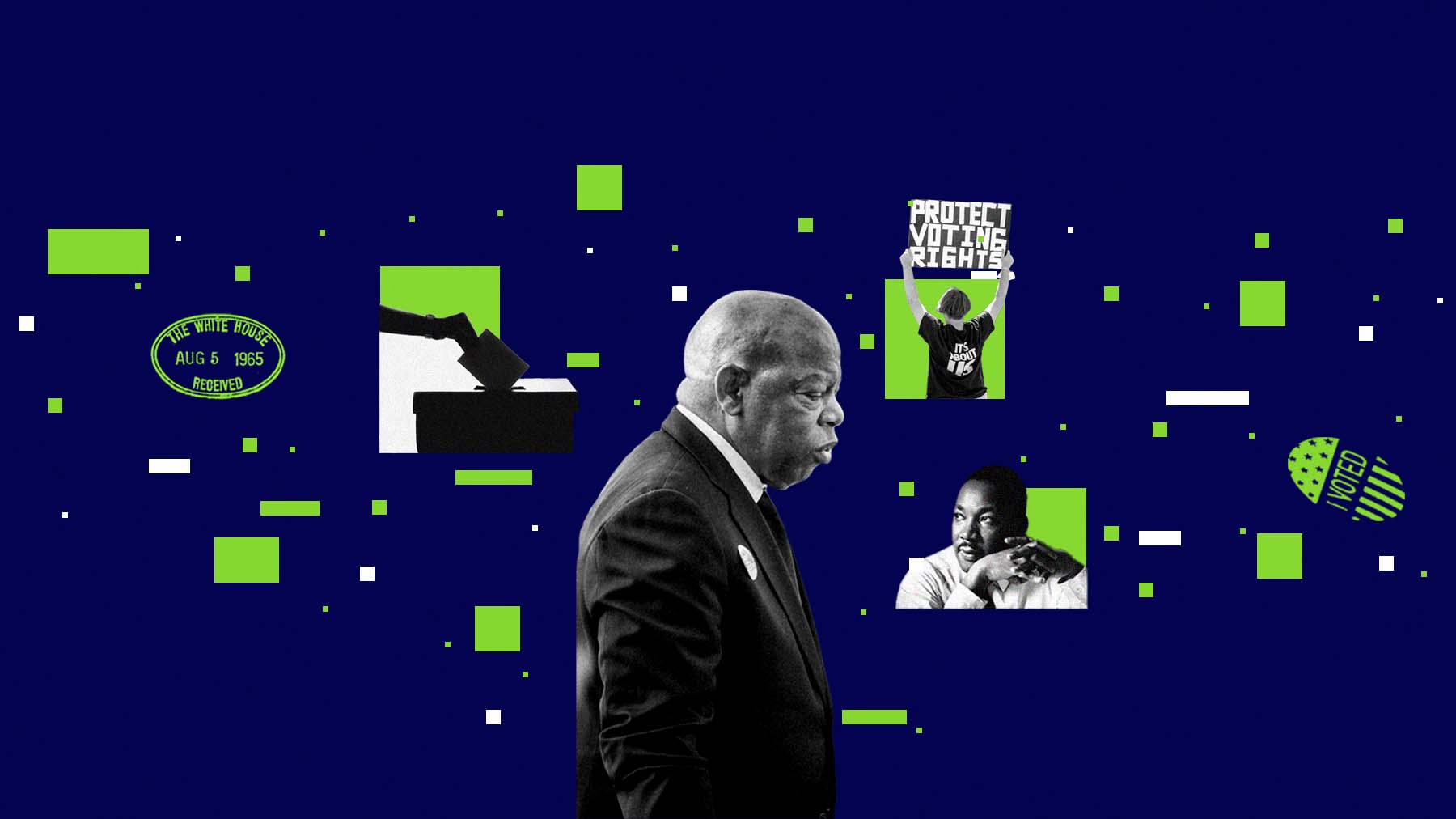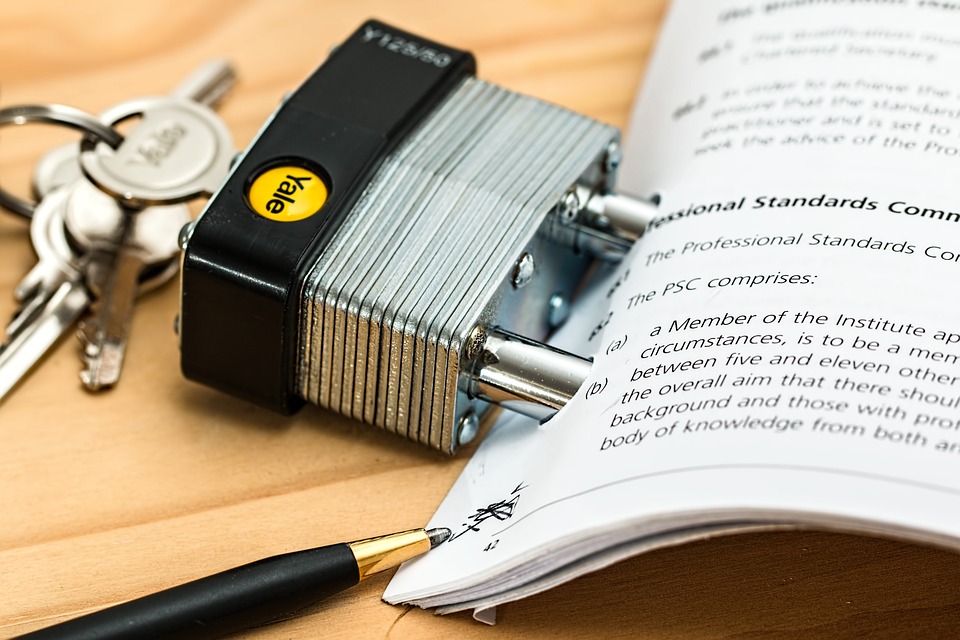Author: admin
A look at the SPLC’s priorities and the president’s State of the Union address
SPLC president condemns political decision that will leave children hungry
Advocate empowers youth in Atlanta neighborhood where SPLC plans new office
The Aries Files
Father Searching for Answers
Navigating the world of child support can be a daunting task, especially when errors in enforcement leave you scratching your head. I’m John Anderson, and I want to share the remarkable journey that led me to uncover what I now call the ‘Aries Files,’ ultimately rectifying a significant error in my child support case.
One day, while going through my child support documents, I couldn’t help but notice discrepancies in the amounts I had paid versus what I thought I owed. Confused and frustrated, I decided to delve deeper into the intricate workings of the child support system.
I learned that child support cases are managed by both the child support enforcement agency and the courts. This complex system left me with more questions than answers. It was during one of my visits to the local child support office that I stumbled upon a cryptic reference to the ‘Aries Files.’ It was a mere mention in passing, but it set off alarm bells in my head.
Over weeks of relentless research and visits to the agency, I slowly uncovered the truth about the ‘Aries Files.’ They were comprehensive records that detailed every aspect of my child support case. Armed with this newfound knowledge, I embarked on a mission to obtain a copy of my own ‘Aries Files.’ The process was far from straightforward, but my determination kept me going.
When I finally held my ‘Aries Files’ in my hands, I combed through every detail of my case meticulously. There it was, a glaring error that had been affecting my child support payments. With this irrefutable evidence, I prepared to file a protest against the child support enforcement agency.
Navigating the protest process was no cakewalk. The bureaucratic hurdles often felt insurmountable, but I remained undeterred. With the guidance of legal counsel, I presented my case before the court, armed with the truth revealed by the ‘Aries Files.’
After a tense courtroom battle, justice prevailed. The error in my child support enforcement was acknowledged and rectified. The ‘Aries Files’ had unveiled the truth, and my child support order was adjusted accordingly.
My journey through the ‘Aries Files’ taught me invaluable lessons about the power of persistence, knowledge, and seeking the truth. I discovered that errors in child support enforcement can occur, but with determination and the right information, they can be corrected.
In the end, justice prevailed, and I emerged from the shadows of uncertainty with a newfound sense of empowerment. If you’re facing similar challenges in your child support case, remember that knowledge is your greatest ally. Explore every avenue, uncover the truth, and, like me, you too can find resolution in the ‘Aries Files.’
Check it Out
The Silent Struggle: Fathers Not Defending Their Rights
In the modern world, discussions about gender equality and the rights of women have taken center stage. While these conversations are incredibly important and have led to significant progress, it’s equally vital to address another facet of gender equality that often goes unnoticed: the rights of fathers. Fathers play a crucial role in their children’s lives, yet many fathers find themselves in situations where they do not defend their rights. In this blog post, we will explore some of the reasons behind this phenomenon and why it’s essential to champion fathers’ rights.
- Stereotypes and Gender Bias
One of the primary reasons why some fathers do not actively defend their rights is the persistence of outdated stereotypes and gender bias. Society has long perpetuated the idea that mothers are the primary caregivers, while fathers are seen as secondary or even optional figures in their children’s lives. These deeply ingrained stereotypes can lead fathers to believe that their roles as parents are less significant, causing them to be less assertive in defending their rights.
- Fear of Legal Battles
Navigating the legal system can be intimidating and emotionally draining, and this fear of protracted legal battles often dissuades fathers from asserting their rights. Many fathers worry that seeking custody or visitation rights will lead to lengthy and costly court battles, which can impact their financial stability, emotional well-being, and their relationship with their children.
- Fear of Strained Relationships
Another factor that may deter fathers from defending their rights is the fear of straining their relationship with the other parent. In cases of divorce or separation, tensions can run high, and fathers may be concerned that asserting their rights will lead to further conflict and negatively affect their children. This fear of causing harm to their kids’ well-being can paralyze fathers, preventing them from taking necessary legal actions.
- Lack of Awareness
Many fathers are simply unaware of their legal rights as parents. They may not know that they have the right to seek custody, visitation, or decision-making authority over their children. This lack of awareness can lead fathers to accept less favorable arrangements than they are entitled to under the law.
- Societal Expectations
Societal expectations can place immense pressure on fathers to fulfill specific roles, often prioritizing their role as breadwinners over their roles as caregivers. This societal pressure can make it challenging for fathers to advocate for their rights as parents, as they may fear judgment or criticism for prioritizing their children’s needs.
Why It’s Important to Defend Fathers’ Rights
It’s crucial to emphasize that defending fathers’ rights is not about diminishing the importance of mothers in children’
Title: The Silent Struggle: Fathers Not Defending Their Rights
Introduction
In the modern world, discussions about gender equality and the rights of women have taken center stage. While these conversations are incredibly important and have led to significant progress, it’s equally vital to address another facet of gender equality that often goes unnoticed: the rights of fathers. Fathers play a crucial role in their children’s lives, yet many fathers find themselves in situations where they do not defend their rights. In this blog post, we will explore some of the reasons behind this phenomenon and why it’s essential to champion fathers’ rights.
- Stereotypes and Gender Bias
One of the primary reasons why some fathers do not actively defend their rights is the persistence of outdated stereotypes and gender bias. Society has long perpetuated the idea that mothers are the primary caregivers, while fathers are seen as secondary or even optional figures in their children’s lives. These deeply ingrained stereotypes can lead fathers to believe that their roles as parents are less significant, causing them to be less assertive in defending their rights.
- Fear of Legal Battles
Navigating the legal system can be intimidating and emotionally draining, and this fear of protracted legal battles often dissuades fathers from asserting their rights. Many fathers worry that seeking custody or visitation rights will lead to lengthy and costly court battles, which can impact their financial stability, emotional well-being, and their relationship with their children.
- Fear of Strained Relationships
Another factor that may deter fathers from defending their rights is the fear of straining their relationship with the other parent. In cases of divorce or separation, tensions can run high, and fathers may be concerned that asserting their rights will lead to further conflict and negatively affect their children. This fear of causing harm to their kids’ well-being can paralyze fathers, preventing them from taking necessary legal actions.
- Lack of Awareness
Many fathers are simply unaware of their legal rights as parents. They may not know that they have the right to seek custody, visitation, or decision-making authority over their children. This lack of awareness can lead fathers to accept less favorable arrangements than they are entitled to under the law.
- Societal Expectations
Societal expectations can place immense pressure on fathers to fulfill specific roles, often prioritizing their role as breadwinners over their roles as caregivers. This societal pressure can make it challenging for fathers to advocate for their rights as parents, as they may fear judgment or criticism for prioritizing their children’s needs.
Why It’s Important to Defend Fathers’ Rights
It’s crucial to emphasize that defending fathers’ rights is not about diminishing the importance of mothers in children’s lives. Rather, it’s about recognizing that both parents have a vital role to play in raising well-adjusted and happy children. When fathers are empowered to assert their rights, it can lead to more equitable parenting arrangements, better emotional and financial support for children, and ultimately, stronger family units.
Conclusion
Fathers not defending their rights is a complex issue influenced by societal norms, stereotypes, legal challenges, and personal fears. However, it’s essential to break down these barriers and ensure that fathers are empowered to be active, involved parents in their children’s lives. By advocating for fathers’ rights, we take a significant step towards achieving true gender equality and creating a better future for our children. It’s time to raise our voices and support fathers in their quest for equal parental rights.
s lives. Rather, it’s about recognizing that both parents have a vital role to play in raising well-adjusted and happy children. When fathers are empowered to assert their rights, it can lead to more equitable parenting arrangements, better emotional and financial support for children, and ultimately, stronger family units.
Conclusion
Fathers not defending their rights is a complex issue influenced by societal norms, stereotypes, legal challenges, and personal fears. However, it’s essential to break down these barriers and ensure that fathers are empowered to be active, involved parents in their children’s lives. By advocating for fathers’ rights, we take a significant step towards achieving true gender equality and creating a better future for our children. It’s time to raise our voices and support fathers in their quest for equal parental rights.
Title: The Right to Travel vs. Driving Licenses: A Philosophical and Legal Perspective
Title: The Right to Travel vs. Driving Licenses: A Philosophical and Legal Perspective
The right to travel is a fundamental human right deeply ingrained in our societal ethos, while a driving license represents a form of regulation and control over an individual’s ability to exercise that right. In this blog post, we will delve into the philosophical underpinnings of the right to travel and the legal concept of licensing, with a focus on how these two concepts intersect and sometimes conflict.
The Right to Travel: A Fundamental Human Right
The right to travel is often considered a natural and inherent human right. It is rooted in the principle of individual freedom and autonomy, which suggests that every person should be free to move, explore, and traverse the world without unnecessary constraints. Philosophically, this right is closely associated with ideas of personal liberty and the pursuit of happiness, as people should have the opportunity to seek better lives, connect with loved ones, and explore the world around them.
Licensing: The Legal Framework
In contrast, licensing is a legal mechanism used by governments to regulate certain activities or professions, including driving. Licensing typically involves an authority, such as a government agency, granting permission to individuals who meet specific criteria and requirements. In the context of driving, a driving license is a legal document that signifies a person’s competency to operate a motor vehicle safely.
Balancing Rights and Regulation
The tension between the right to travel and the necessity for driver’s licenses arises when governments implement regulations to ensure the safety of road users. This balance between individual rights and public safety is a core consideration in the philosophy of rights.
- Public Safety: Licensing for activities like driving is justified on the grounds of public safety. Governments have a legitimate interest in ensuring that individuals operating vehicles on public roads are competent and responsible, as this protects the safety and well-being of all citizens.
- Proportional Regulation: Philosophically, the restriction of rights is acceptable if it is proportionate and necessary to achieve a legitimate societal goal. Requiring driver’s licenses is a means to ensure road safety while allowing individuals to exercise their right to travel.
- Due Process: The legal framework for licensing typically includes due process, which means that individuals have the right to apply for licenses and challenge any denials or revocations. This ensures that individuals’ rights are respected within the regulatory framework.
Conclusion
In conclusion, the dynamic interplay between the right to travel and the concept of licensing is a thought-provoking topic that involves both philosophical principles and legal considerations. If you’d like to delve deeper into this intriguing subject and explore more insights, we invite you to visit our website. There, you’ll find a wealth of resources, articles, and information to broaden your understanding of rights, regulations, and the fascinating intersections that shape our world. Join us on our website to continue your exploration of these vital topics and engage in meaningful discussions. Your journey into the world of rights and regulations awaits!
Title: Common Language vs. Legal Jargon: Why It Matters in the Courtroom
Title: Common Language vs. Legal Jargon: Why It Matters in the Courtroom
In the complex world of law and litigation, the words we use can hold the key to justice. While language is a powerful tool for communication, it can also be a source of confusion and misunderstanding, particularly when it comes to the disparity between common definitions and legal usage of words. In this blog, we will explore the significance of this difference and why it plays a pivotal role when you find yourself in a courtroom.
Common Definitions vs. Legal Usage
Words are the building blocks of language, and we use them every day to express ideas, convey information, and communicate with one another. However, in the legal realm, words often take on a specialized meaning that may differ significantly from their common, everyday definitions.
Let’s consider an example: the word “assault.” In everyday conversation, we might think of assault as a physical attack. However, in a legal context, assault can encompass a broader range of actions, including threats and actions that instill fear of harm in another person, even without physical contact.
Precision and Clarity in the Courtroom
The legal system places a high premium on precision and clarity in language. When you step into a courtroom, it’s essential to understand that the words you use will be scrutinized not only for their common meaning but also for their legal implications. This precision is crucial for several reasons:
1. Legal Precedent: Legal decisions are often based on previous cases and established legal principles. Courts rely on a precise and consistent understanding of legal terms to interpret and apply the law correctly.
2. Fairness: Clear and unambiguous language ensures that all parties involved in a legal proceeding understand the issues at hand. This fairness is fundamental to a just legal system.
3. Avoiding Misinterpretation: Misunderstanding or misusing legal terms can have dire consequences. It may lead to unfavorable judgments, loss of rights, or even legal penalties.
4. Protecting Your Rights: Understanding the legal meaning of words is crucial for protecting your rights and effectively presenting your case in court.
Why It Matters to You
You might wonder why this distinction between common definitions and legal usage should matter to you, especially if you’re not a legal professional. Here’s why:
- Self-Representation: If you find yourself in court without legal representation, a basic understanding of legal terminology can help you navigate the process more effectively.
- Legal Documents: When drafting or reviewing legal documents, such as contracts or agreements, knowing the precise meaning of terms is essential to protect your interests.
- Everyday Situations: Legal concepts can extend beyond the courtroom. Understanding the implications of words in legal contexts can help you make informed decisions in various aspects of life, such as business, family, and property matters.
In conclusion, the disparity between common definitions and legal usage of words is not a mere linguistic nuance but a critical element of the justice system. It underscores the importance of clarity, precision, and fairness in legal proceedings. Whether you’re involved in a legal matter or simply striving to be an informed citizen, understanding this distinction can empower you in various aspects of life, ensuring that your words carry the weight of their legal significance.
Valuable legal resources to empower your legal journey.
Here we believe in providing you with the most comprehensive and valuable legal resources to empower your legal journey. That’s why, as a valued member, you gain exclusive access to a treasure trove of legal dictionaries, including the renowned Black’s Law Dictionary and a wide array of other authoritative legal references.
Imagine having the power to decipher complex legal terms, statutes, and case law with ease. With our membership, you can dive deep into the world of legal definitions, gaining a profound understanding of the language of the law. Whether you’re a legal professional, a student, or someone simply interested in understanding the intricacies of the legal system, our extensive collection of legal dictionaries will be your trusted companions on your educational path.
Why struggle to interpret legal language when you can have instant access to the most respected legal dictionaries available? Join us today and elevate your legal knowledge to new heights. With Lalojudgmentrecovery.com, you’ll always have the right words at your fingertips, making your legal journey smoother and more informed. Don’t miss out on this invaluable resource—enroll now and unlock the power of legal dictionaries!
Unlock a World of Legal Knowledge with Our Exclusive Membership Access
Unlock a World of Legal Knowledge with Our Exclusive Membership Access
In our exploration of the critical difference between common language and legal jargon, it’s important to highlight the incredible value of having access to authoritative legal dictionaries. One such gem is the renowned Black’s Law Dictionary, which serves as the Holy Grail for legal definitions. As a member of Lalojudgmentrecovery.com, you not only gain insights into the nuances of legal language but also secure exclusive access to Black’s Law Dictionary and an extensive array of other hard studied legal references.
Imagine having the power to delve into the depths of complex legal terms, statutes, and case law with ease. With our membership, you can do just that. Our collection of legal dictionaries will be your trusted companions on your educational journey, whether you’re a legal professional, a student, or someone eager to grasp the intricacies of the legal system.
Why wrestle with legal language when you can effortlessly interpret it using the most respected legal dictionaries available? By joining us today, you’ll open the doors to unparalleled legal knowledge. With Lalojudgmentrecovery.com, you’ll always have the right words at your disposal, enhancing your legal acumen and making your journey through the intricate world of law more seamless. Don’t miss out on this invaluable resource—enroll now and unlock the power of legal dictionaries to illuminate your path in the legal landscape.













